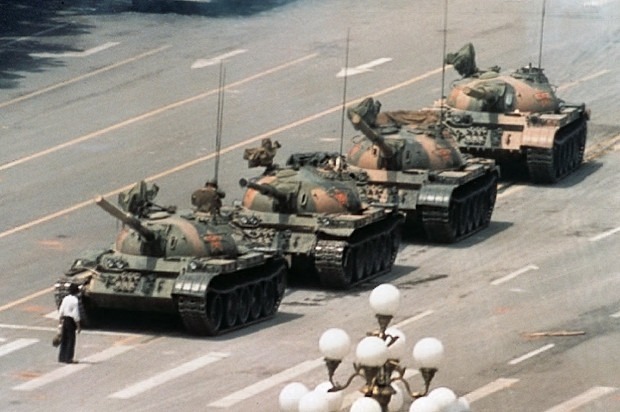The Attack on Democracy in China
The Tiananmen Square Tank Man photo has become one of the most iconic symbols of the fight for Democracy in China Recolorization courtesy of Flickr
February 23, 2022
Hong Kong, a special administrative region of China, has been facing anti-democracy laws and threats by Chinese authorities for over a year. The National Security Law, implemented by Hong Kong, allows the Chinese central government to punish anyone opposing its ideals and gives more power to the communist regime. Because of the legislation and the violence that has been occuring to protesters and activists, one of the last pro-democracy media outlets — Apple Daily — was shut down after a police raid in December of 2021. Additionally, anyone who dissented to Chinese governmental policy was prevented from being able to run for future elections, further enforcing the government’s power over its populace. The Chinese government has also imposed its power to take down other democratic symbols, including in Tiananmen Square.
Tiananmen Square is an important region in China and is also where the infamous Tiananmen Square Massacre of 1989 occurred. This incident entailed student-led demonstrations to advocate for more political freedom. Soon after the protests grew in size, the Chinese government chose to deploy the army and use military force against the students, killing hundreds. This historical event has remained a symbol of the Chinese fight against censorship and oppression, with monuments commemorating this event being built in Hong Kong. Sadly, however, during the anti-democracy opposition in December, these monuments were torn down.
Members of the PDS community expressed their opinions on the situation occurring in China and believe it is an important issue to be discussed. For example, Junior David Cohen states, “China is restricting core American values like freedom of speech and expression, and even though it’s okay for other countries like China to not hold these views, it is not justifiable to hold people in jail because they have opposing opinions.” Although Cohen believes that China should not be oppressing citizens who have pro-democratic views, he acknowledges that China does not have to cherish the same values as the US does. However, even though China is an independent nation, free to enforce any laws it deems necessary, suppressing the voices of peaceful opposition is flagrantly unethical. Sophomore Aadi Shankar adds, “as an American, it is crazy to see the CCP crackdown on one of America’s most important values, freedom of the press and speech, in what used to be the democratic area of Hong Kong. It’s also scary to think about how the media doesn’t know the full story, since the government is likely censoring some of the most scary headlines.”
While China has always been known for its communist ideals, the recent situation brings to light the drastic measures that China is willing to take to enforce its ideologies. Still, as relevant information stays restricted by the Chinese government, the future of democracy in China remains uncertain.








